Publications
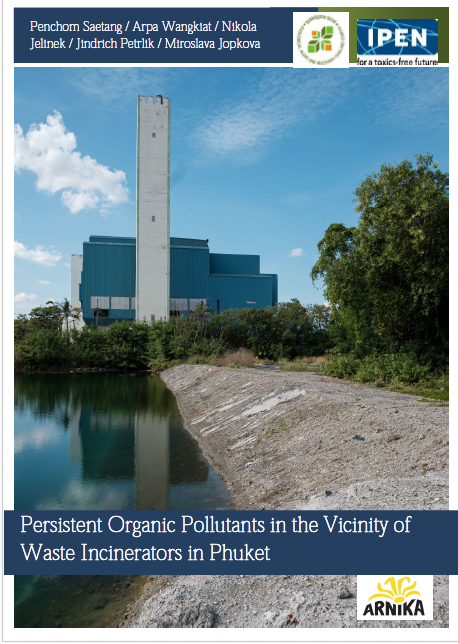
Persistent Organic Pollutants in the Vicinity of Waste Incinerators in Phuket
Arnika - Toxics and Waste Programme) EARTH and IPEN | May 2024
The report has focused on additional monitoring of food and biota in surrounding of Phuket waste incinerator. The aim of sampling and monitoring in surrounding of municipal waste incinerators in Phuket was to obtain more data about contamination by POPs, including their presence in food chain represented by free-range chicken eggs. High concentrations of POPs, particularly PCDD/Fs and dl PCBs, have been repeatedly detected around the MSWIs in Phuket, and PBDEs, PFASs and MCCPs were detected recently there.
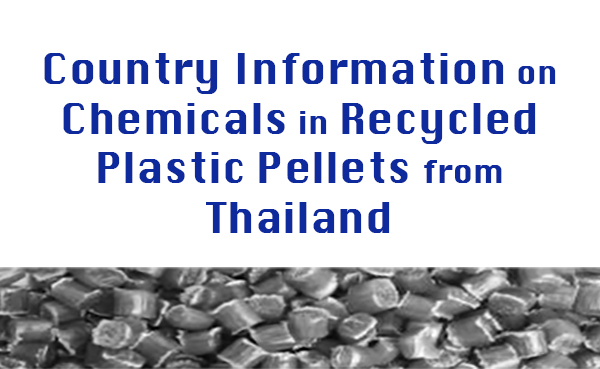
Country Information on Chemicals in Recycled Plastic Pellets from Thailand
The results from the broader analysis was published in the data article A dataset of organic pollutants identified and quantified in recycled polyethylene pellets, and the complete dataset is publicly available online. Samples from 13 countries were analyzed, and nearly 500 chemicals were detected in total. These included pesticides, industrial chemicals, PCBs, pharmaceuticals, and many others.
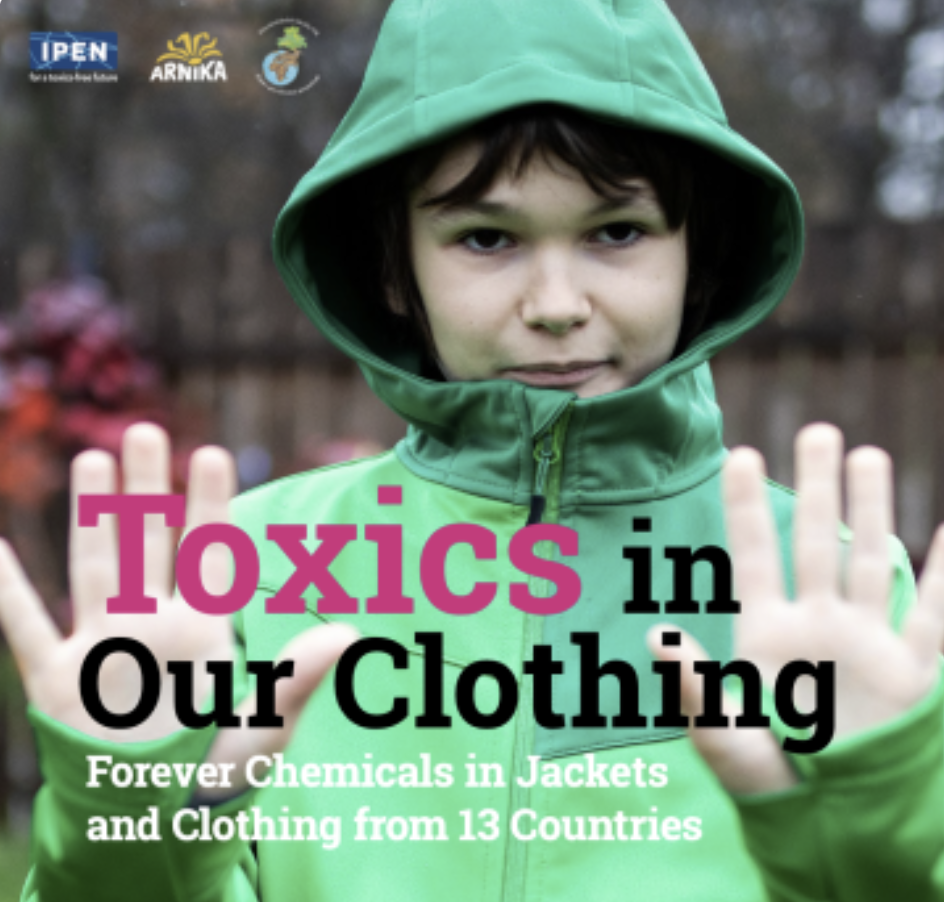
Toxics in Our Clothing: Forever Chemicals in Jackets and Clothing from 13 Countries
Straková, J., Brosché, S., Brabcová, K. | November 2023
Jackets and other clothing sold as water- or stain-resistant were purchased from 13 countries in Asia, Africa, Europe and North America. Most of the jackets tested were marketed for children. Countries included were Germany, Czech Republic, Netherlands, Poland, United Kingdom, Serbia, Montenegro, Kenya, Bangladesh, India, Sri Lanka, Thailand, and the U.S.
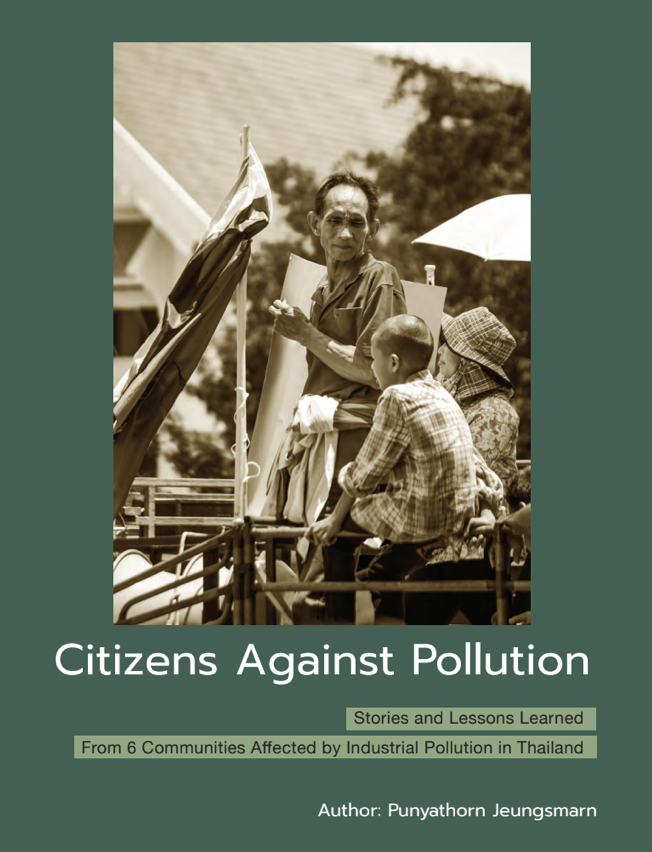
Citizens Against Pollution: Stories and Lessons Learned from 6 Communities Affected by Industrial Pollution in Thailand
Author: Punyathorn Jeungsmarn, Published by EARTH | July 2023
This book presents six battlefields of pollution in Thailand. They include Nam Phong district, Khon Kaen province; Nampu subdistrict, Muang district, Ratchaburi province; Nong Phawa village, Bang But subdistrict, Ban Khai district, Rayong province; Phanom Sa
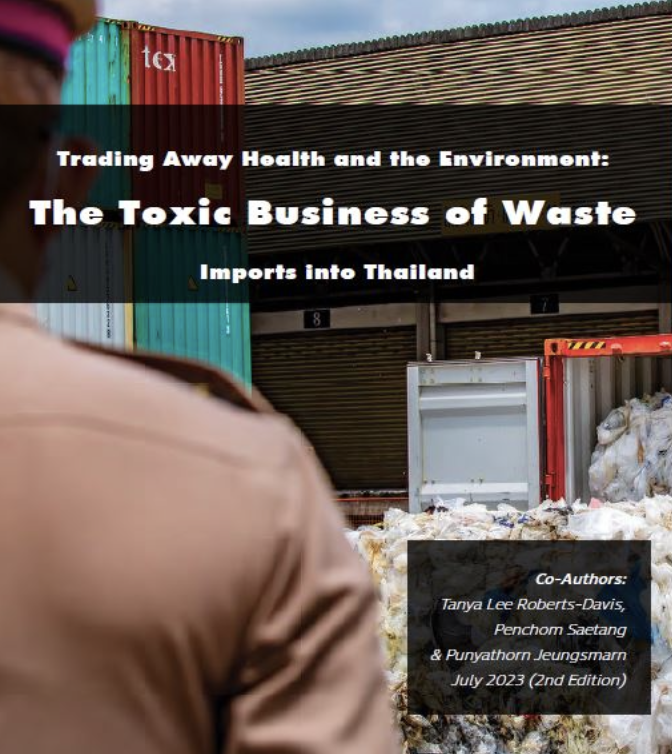
Trading Away Health and the Environment: The Toxic Business of Waste Imports into Thailand
July 2023 (2nd Edition: Updated from June 2019 version)
Trading Away Health and the Environment provides an overview of the devastating impacts on the health and well-being of communities in Thailand where industrial waste processing facilities are being developed as part of an ongoing expansion of the transnational business of plastic and used elect
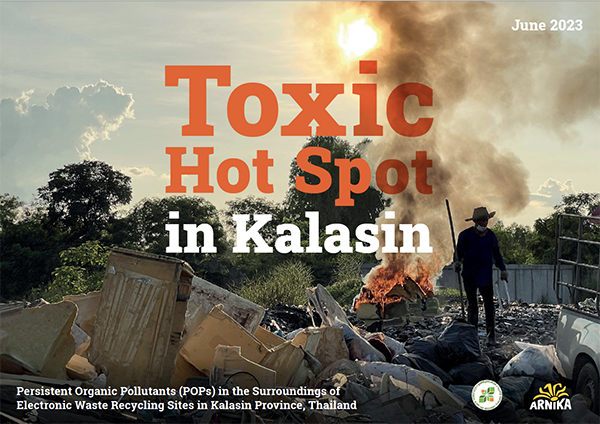
Toxic Hotspot in Kalasin
Persistent Organic Pollutants (POPs) in the Surroundings of Electronic Waste Recycling Sites in Kalasin Province, Thailand, June 2023
Electronic waste and its imports from abroad represent a big burden for the environment and human health in Thailand. This study is mainly focused on research of community based informal e-waste separation anddismantling operations in the Khok Sa-ad subdistrict, Khong Chai district, Kalasin province in northeastern Thailand, where also a large dumpsite with substantial quantity of waste from electronic equipment and machineries is found.
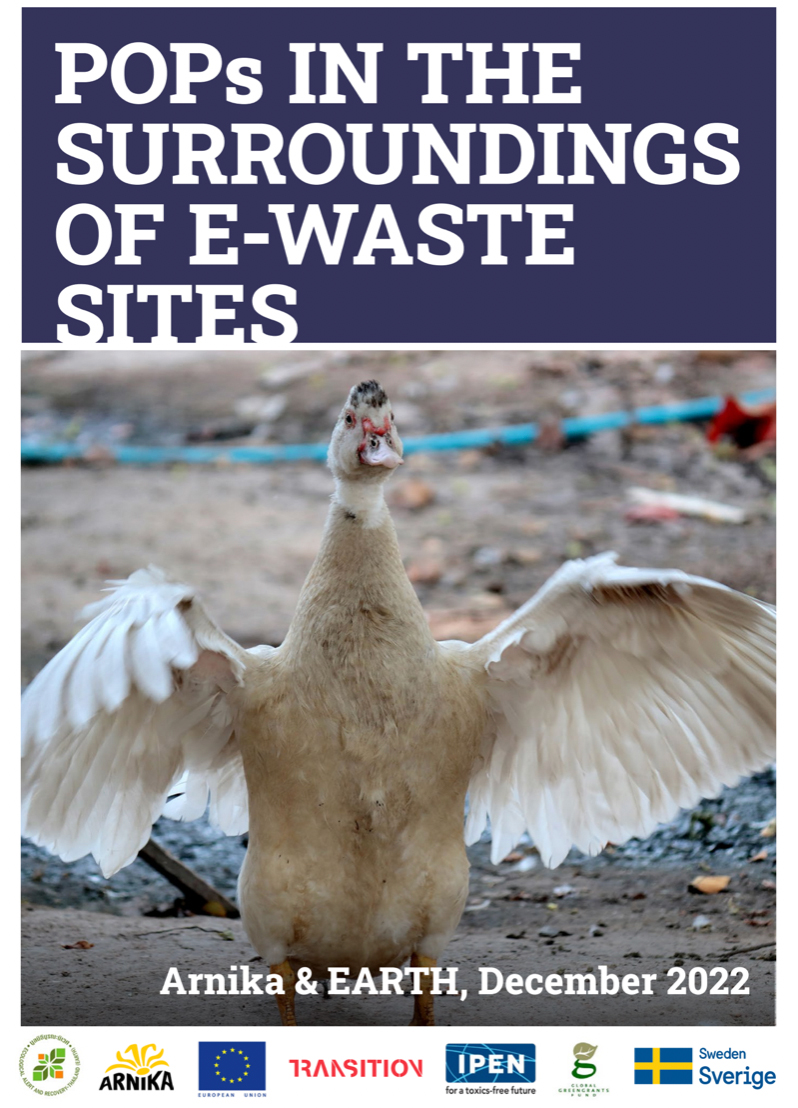
POPs IN THE SURROUNDINGS OF E-WASTE SITES
By Arnika – Toxics and Waste Programme, International Pollutants Elimination Network (IPEN), and Ecological Alert and Recovery Thailand (EARTH) | December 2022
Electronic waste (e-waste) and its imports from abroad represent a big burden for the environment and human health in Thailand. This study is focused on mapping pollution by POPs (Persistent Organic Pollutants) in the vicinity of two facilities processing e-waste in Chachoengsao province, and one site affected by the disposal of sludge of unknown origin (Hat Nang Kaeo) in Prachinburi province. We focused on POPs which are used as additives in electronic equipment and plastic used for its casing, such as, for example, brominated flame retardants (BFRs), short-chain chlorinated paraffins (SCCPs), and others. We also focused on POPs produced unintentionally during the production of BFRs, and particularly during incineration and other thermal processes used for the disposal and recycling of plastics from e-waste.
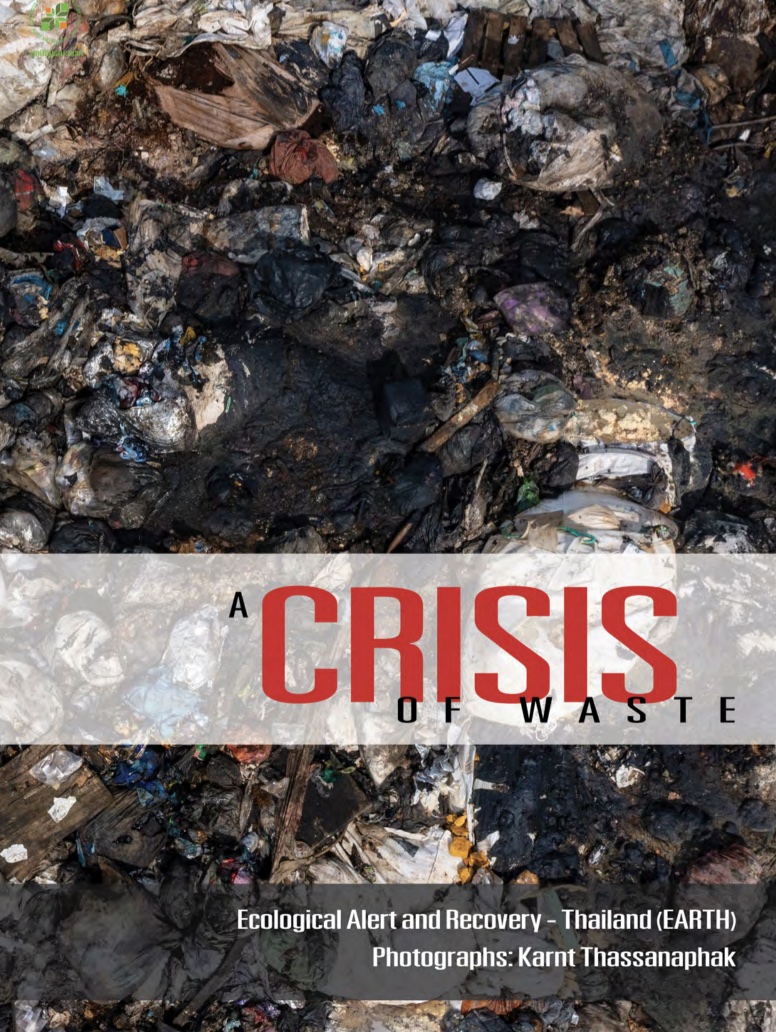
A Crisis of Waste: A Photo Book on the Situation and Crisis of Waste in Thailand
By EARTH, Photo by Karnt Thassanaphak, December 2021
The world is facing a crisis of waste, and Thailand is no exception. Today, this country faces a growing quantity of wastes from various sources, including households/communities and industrial factories. In addition, plastic scraps, electronic scraps and wastes of other sorts are flowing from across the border into recycling factories. These waste importations occur through various avenues from illegal smugglings to exploitation of loopholes in the law.
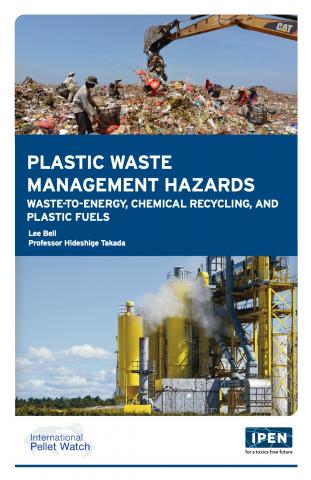
Plastic Waste Management Hazards
2021 | Prof. Hideshige Takada, Dept. of Environmental & Natural Resource Sciences, and
Lee Bell, IPEN Mercury and POPs Policy Advisor
Plastic waste has become an unprecedented pollution issue around the globe. From visible plastic litter on land and in oceans to invisible micro-plastics in lakes, mountains, and rain, the planet is increasingly blanketed in the petrochemical remnants of plastic production. With petrochemical companies avoiding fossil fuel carbon liabilities by massively increasing plastic production, the amount of plastic waste generated is set to climb dramatically.

Waste Trade in Southeast Asia: Legal Justifications for Regional Action
EcoWaste Coalition - JULY 2021
The COVID-19 pandemic has already had negative effects on waste management, significantly contributing to increases in medical waste and household waste, and a substantial slowdown in recycling efforts. This upsurge in hazardous waste particularly endangers developing countries that are destinations for waste exports via the global waste trade.


